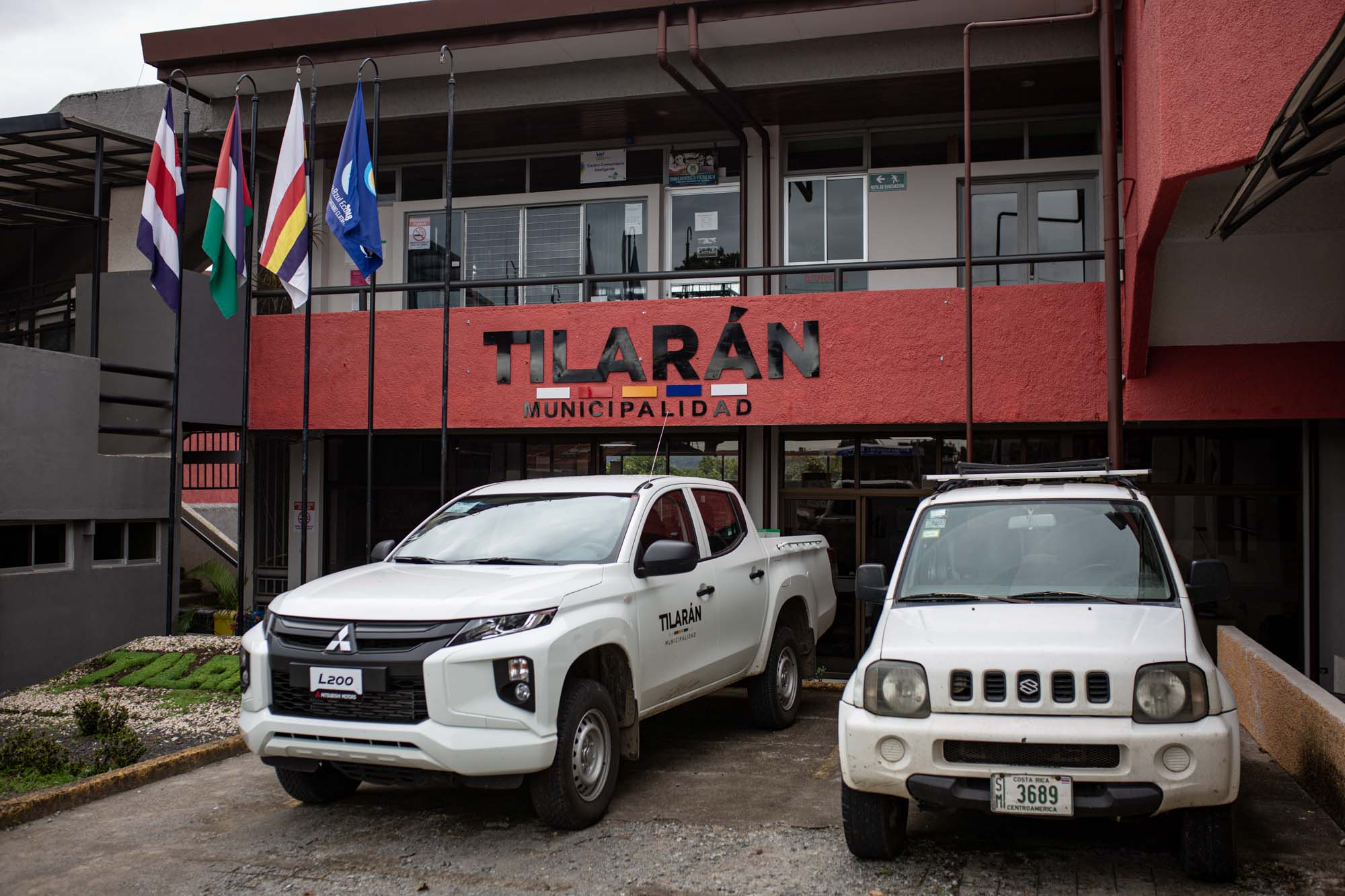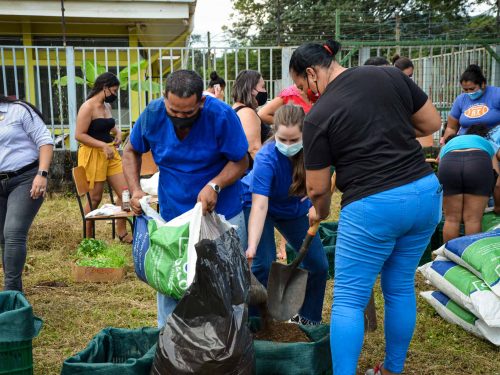
What should be done with all the food sales and informal businesses that have emerged in the community due to unemployment caused by the pandemic? That was the dilemma faced by the mayor of Tilaran, Juan Pablo Barquero, during the economic crisis caused by COVID-19.
According to the mayor, 77 businesses have canceled their licenses in Tilaran since the virus began and people were forced to develop family businesses to deal with the crisis.
In light of the increase in informal businesses, Barquero had two options: shut down the informal businesses or find a way to support them. The mayor decided to take the second path and created a project aimed at legalizing entrepreneurs.
This project has two main purposes: to improve the working conditions of entrepreneurs and to create an economy based on equal conditions together with the formal businesses that operate in Tilaran.
“Informality also affects licensed businesses who pay social security, who pay rents, who pay for the business license. We believe that the best thing for Tilaran’s economy is that we support these new ventures and that people conduct their economic activities under equal conditions,” commented the mayor.
The municipality working together with the Integral Development Associations (ADIs-Asociaciones de Desarrollo Integral) in each community of Tilaran is essential to developing the project.
Businesses will be legalized through the ADIs. The associations are in charge of organizing the business ventures and offering them the necessary permits and infrastructure so the companies can carry out their economic activities. The municipality guides the associations and gives them advice so they can obtain an operating license and complete the legal requirements for the businesses to operate formally.
“In conjunction with the National Community Development Administration (DINADECO for the Spanish acronym), we have found the possibility that the ADIs be the ones that carry out the formal procedures, generate a business license and that informal businesses can carry out their activity in the association’s infrastructure,” explained Barquero.
The mayor hopes that two community initiatives, one in the El Carmen neighborhood and the other in Rio Piedras, will serve as an example for other associations in the canton that want to participate in the project. Here is more information about these cases:
El Carmen Neighborhood: A Communal Kitchen Led By Women
“As a result of the pandemic, many people started selling homemade bread, prestiños (fried pastries), empanadas, ceviche and a series of mainly food ventures. In addition, we realized that the majority were women,” said Randall Ruiz, ADI project manager for the El Carmen neighborhood.
The ADI in this community thought of setting up a kind of communal kitchen where a group of 25 interested women will prepare and market food while having the business license and health permits for the activity to operate legally.
“Many business ventures don’t prosper because people feel that they have limited resources and lose motivation. At the ADI, we’re going to be in charge of getting what they need to cook. All they need is availability and willingness to work with other women,” explained Ruiz.
The restaurant will be located 800 meters south of the cathedral. It is expected to open between December 24 and 31. The kitchen will be open Monday through Friday and the 25 women will rotate in groups of five each week of the month.
The idea is that 80% of the earnings will be divided among the 25 women [even if it isn’t the week that they work] and the remaining 20% will go to the ADI to cover the kitchen operating expenses. In this way, “we hope to break paradigms and create a kind of economic solidarity,” according to Ruiz.
According to the project manager, the communal kitchen goes further. The ADI hopes to have a registered trademark that allows it to position its entrepreneurs’ products in markets outside of the El Carmen neighborhood.
“The projection is that as we have more products, we can market them elsewhere under the ADI brand. This would also create more jobs for those who want to sell our products,” said Ruiz.
Rio Piedras: A Fair to Create Jobs
The Rio Piedras ADI organized a group of new entrepreneurs and started a fair six months ago to face the economic crisis.
This initiative began informally given the urgency that the association saw to create a space for people who were selling their products on the streets, according to the president of the Rio Piedras ADI, Duney Lopez.
Now, as part of the Municipality of Tilaran’s project, the fair is waiting for the place’s business license in order to compete with businesses formally.
“We are an area that people pass through on their way to other tourist destinations near Tilaran. With this fair, we think we can take advantage of the visitors passing by and even attract people from other communities to look for the products that are offered here,” Lopez commented.
The organized group includes 23 vendors, and the fair is held every other Saturday. It takes place on the basketball court located in front of the community hall, a space provided by the ADI.
To cover the operating costs, each seller must pay a fee of 2,000 colones (about $3.25).
“It’s an open fair. Anyone who sells a product can participate. We have people who grow yucca, plantains, chayotes and other vegetables, even women who sell prepared food, crocheted coats and handicrafts,” said Lopez.
The organizers hope that in the next few months, they can include express service for people in the community who don’t go to the fair out of fear of getting infected with the coronavirus.





Comments